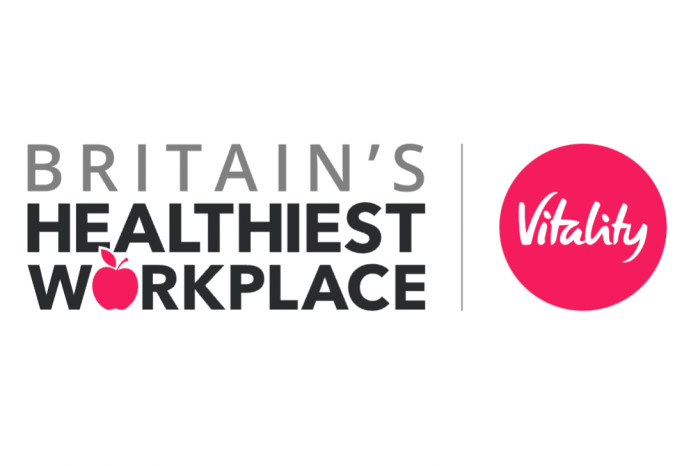Employers see the positive side of ADHD and autism

Roula Khalaf, Editor of the FT, selects her favourite stories in this weekly newsletter.
When interviewing for a general manager job at the National Trust, four years ago, Tracey Churcher made a spur-of-the-moment decision to disclose that she has attention deficit hyperactivity disorder.
She told interviewers at the UK heritage organisation that the way her brain is wired means she is good at varied, reactive work, but that she struggles with routine tasks and deploys coping mechanisms to stay on top. “I can do the war, but the peace can be challenging,” she explains.
They offered her the job. She says her line manager read more about ADHD after the interview, and concluded that it made her a good fit. Churcher says her job, managing various sites on the Isle of Purbeck in Dorset, south-west England, often requires reacting to several situations at once.
Her experience is testament to how neurodiversity — differences in how the brain processes information, because of conditions such as autism, ADHD and dyslexia — is gaining recognition in the workplace as a beneficial attribute.
Sign up for the survey!

Help your employees get happier, healthier and more productive. Any organisation in the UK with 20 or more employees can take part. Click here to sign up now.
Last year, several prominent British companies — including drugmaker AstraZeneca, engineering group Rolls-Royce and consumer goods group Unilever — formed Neurodiversity in Business, a network that aims to share good practice on recruiting and retaining a neurodiverse workforce. And, earlier this year, the UK government launched a review into improving the employment prospects of people with autism.
At Rolls-Royce, neurodivergent colleagues are invited to speak at internal panel events on their experiences at work, says global inclusion lead Natasha Whitehurst. The company is developing a toolkit and training for staff, with advice on how to support neurodivergent colleagues. In its early-career recruitment, the company makes adjustments such as offering the option of a video call and seeing interview questions in advance. Those adjustments are offered to both neurodivergent and neurotypical applicants.
As things stand, being neurodivergent is still more commonly a hurdle to employment than a ticket to a top job. According to the Office for National Statistics, only 29 per cent of people in the UK aged 16 to 64 with autism were employed in the year to June 2021. Studies have shown that people with ADHD have, on average, lower incomes and are more likely to be unemployed than the general population.

The National Trust is among the employers trying out alternative recruitment strategies aimed at including neurodiverse candidates. Heather Smith, access and equality specialist at the organisation, says that, for some vacancies, the Trust shares its questions in advance, or runs experience days that involve group work and conversation rather than formal interviews. “We’re thinking about how to get the best out of people,” she says.
Examining the language used in job descriptions can also be helpful for neurodivergent candidates. It is common for autistic people to rule themselves out of jobs they are well qualified for because they are put off by ambiguous language, such as requirements to be a “team player,” says Danae Leaman-Hill, director of external affairs and development at Ambitious About Autism, a charity that advocates for autistic children and young people.
There is evidence that neurodivergent employees can outperform their neurotypical peers. For example, a JPMorgan programme to hire and support people with autism found they could be much more productive than other recruits.
However, advocacy groups say the bigger aim should be inclusion for its own sake. “I caution against the commodification of autistic people,” says Leaman-Hill. “This is about fairness and equity. Not every autistic person has a specific skill that outstrips that of their neurotypical peers.”

Concerns about negative perceptions cause many neurodivergent people to hide their condition at work. A recent survey of 990 neurodivergent workers by researchers at Birkbeck, University of London, found that 65 per cent feared disclosing their condition would lead to discrimination from management, and 55 per cent said they feared stigma from colleagues. The research was commissioned by Neurodiversity in Business.
“There isn’t a drop-down list,” of accommodations for neurodiversity, points out Sharon Didrichsen, managing director at Specialisterne Northern Ireland, a non-profit organisation that aims to boost employment prospects for autistic people. “It’s taking time to listen and ask that person what would help them achieve that task and what are the barriers in the way.” Specialisterne — Danish for “The Specialists” — works with several businesses in Northern Ireland, including Microsoft, IBM and insurer Allstate.
Jonathan McMurray, who was diagnosed with autism in his mid-30s, finds that workplace culture is more important than specific accommodations. “The managers I’ve worked with are supportive and curious,” he says of his job at Microsoft in Belfast. “There’s not a one-size-fits-all and my input is welcomed.”
At other employers, prior to his diagnosis, McMurray — now 38 years old — says he struggled with the “Game of Thrones-y stuff [politics] that there is in larger offices” and that his communication style sometimes led to him being viewed as a troublemaker.
At Microsoft, he specifies that he is neurodiverse in his email signature, alongside a link to an internal document describing good practice for working with autistic colleagues. “I wear it like a badge just so people know [that if] I’ve made a mistake or stepped on a conversational landmine, it’s not intentional and there’s no malice,” he says.
For Churcher, who is 54 years old, growing recognition of neurodiversity has made a big difference to her work life. During her 20s, before realising she had ADHD, she had struggled with managerial feedback at the pharmaceutical company where she worked. She now identifies her experience as rejection sensitive dysphoria — a strongly negative emotional reaction to perceived rejection or criticism that is often experienced by people with autism or ADHD.
She became aware that she had ADHD during her 30s, when her son received a diagnosis for the condition. Now, she is open with colleagues about it and has developed coping strategies for staying on top of the tasks she finds more difficult. She says her co-workers understand if she “goes off topic” but also appreciate her creativity, spontaneity and drive to get things done.
“The way my brain works has a name, but we’re all different,” she says. “Being honest in who we are in the workplace makes the workplace a more enjoyable place to be.”

Comments